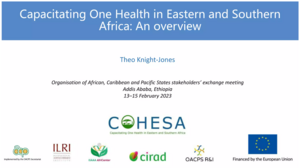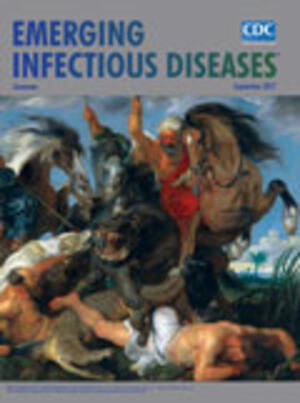
MERS-CoV antibodies found in two people in eastern Kenya
 Transmission electron micrograph of Middle East Respiratory Syndrome coronavirus, MERS-CoV (image credit: NIAID). MERS-CoV belongs to the coronavirus family. Human coronaviruses were first identified in the mid-1960s; MERS-CoV was first reported in 2012 in Saudi Arabia. Coronaviruses can also infect animals. Named for the crown-like spikes on their surface, coronaviruses are common in people, usually causing mild to moderate upper-respiratory tract illnesses. Two exceptions are the MERS-CoV and the SARS (Severe Acute Respiratory Syndrome)-CoV.
Transmission electron micrograph of Middle East Respiratory Syndrome coronavirus, MERS-CoV (image credit: NIAID). MERS-CoV belongs to the coronavirus family. Human coronaviruses were first identified in the mid-1960s; MERS-CoV was first reported in 2012 in Saudi Arabia. Coronaviruses can also infect animals. Named for the crown-like spikes on their surface, coronaviruses are common in people, usually causing mild to moderate upper-respiratory tract illnesses. Two exceptions are the MERS-CoV and the SARS (Severe Acute Respiratory Syndrome)-CoV.
A new study published in the science journal Emerging Infectious Diseases reports that two individuals in Kenya have tested positive for the presence of antibodies to Middle East Respiratory Syndrome coronavirus (MERS-CoV). Neither person is ill or recalls having any symptoms associated with MERS.
There is no evidence of a public health threat and scientists concluded that the infections caused little or no clinical signs of illness. But they plan follow-up studies, as this is the…
View original post 1,251 more words





















